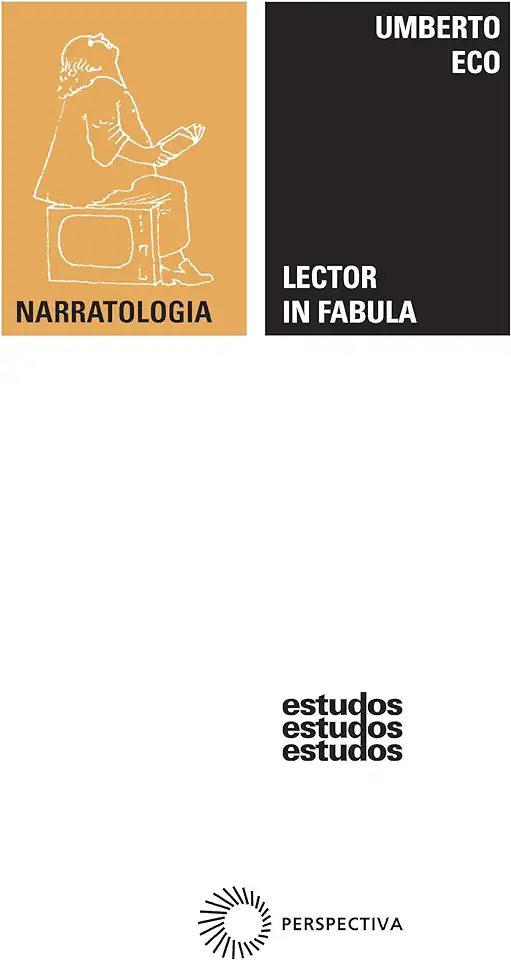
Lector in Fabula - Umberto Eco
Lector in Fabula: Exploring the Role of the Reader in Literary Interpretation
In his groundbreaking work, "Lector in Fabula," Umberto Eco delves into the intricate relationship between the reader and the text, challenging traditional notions of literary interpretation and offering a new perspective on the role of the reader in shaping meaning. Eco argues that the reader is not a passive recipient of information but an active participant in the construction of meaning, bringing their own experiences, knowledge, and interpretations to the text.
The Active Reader
Eco's theory of the "active reader" stands in stark contrast to traditional views of literary interpretation, which often assume that the meaning of a text is fixed and objective. Eco argues that the meaning of a text is not inherent in the text itself but rather emerges from the interaction between the text and the reader. The reader's experiences, beliefs, and expectations shape their interpretation of the text, making each reading a unique and personal experience.
The Role of the Author
Eco also challenges the traditional view of the author as the sole authority on the meaning of a text. He argues that the author's intention is not the only factor that determines the meaning of a text. Instead, the reader's interpretation is equally important, and in some cases, may even supersede the author's intention. Eco's theory of the "death of the author" emphasizes the reader's role in creating meaning and highlights the importance of the reader's perspective in literary interpretation.
The Open Text
Eco's concept of the "open text" further supports his theory of the active reader. He argues that a text is not a closed system with a single, fixed meaning. Instead, a text is open to multiple interpretations, and the reader's role is to explore these different possibilities and construct their own understanding of the text. Eco's theory of the open text encourages readers to engage with the text critically and creatively, rather than passively accepting the author's intended meaning.
The Model Reader
Eco introduces the concept of the "model reader" to further explore the role of the reader in literary interpretation. The model reader is an ideal reader who is able to understand the text in the way that the author intended. However, Eco argues that the model reader is not a real person but rather a theoretical construct that helps us understand the author's expectations for the reader. The model reader's role is to guide the reader's interpretation of the text and to help them understand the author's intended meaning.
The Limits of Interpretation
While Eco emphasizes the importance of the reader's role in literary interpretation, he also acknowledges the limits of interpretation. He argues that there are certain constraints on the reader's interpretation, such as the author's intention, the text's genre, and the reader's own cultural and linguistic background. Eco's theory of the limits of interpretation highlights the importance of balancing the reader's freedom to interpret the text with the author's intended meaning and the text's own inherent characteristics.
Conclusion
"Lector in Fabula" is a seminal work that has revolutionized the field of literary theory. Eco's theory of the active reader challenges traditional notions of literary interpretation and emphasizes the importance of the reader's role in shaping meaning. His concept of the open text encourages readers to engage with the text critically and creatively, while his theory of the limits of interpretation acknowledges the constraints on the reader's interpretation. "Lector in Fabula" is a must-read for anyone interested in literary theory, interpretation, and the role of the reader in the construction of meaning.
Why You Should Read "Lector in Fabula"
If you are passionate about literature and enjoy exploring the depths of literary interpretation, then "Lector in Fabula" is a book you cannot afford to miss. Eco's groundbreaking work will challenge your assumptions about the role of the reader and open up new possibilities for understanding and appreciating literature. Here are a few reasons why you should read "Lector in Fabula":
- Gain a deeper understanding of the complex relationship between the reader and the text.
- Explore the concept of the "active reader" and how your own experiences and knowledge shape your interpretation of a text.
- Challenge traditional views of literary interpretation and discover new ways of approaching and understanding literature.
- Engage with the concept of the "open text" and learn how to explore the multiple interpretations and meanings of a text.
- Gain insights into the role of the author in literary interpretation and understand the limits of interpretation.
- Become a more critical and creative reader, able to engage with literature on a deeper and more meaningful level.
"Lector in Fabula" is a thought-provoking and influential work that will change the way you think about literature and the role of the reader. Don't miss out on this opportunity to expand your understanding of literary interpretation and deepen your appreciation for the written word.